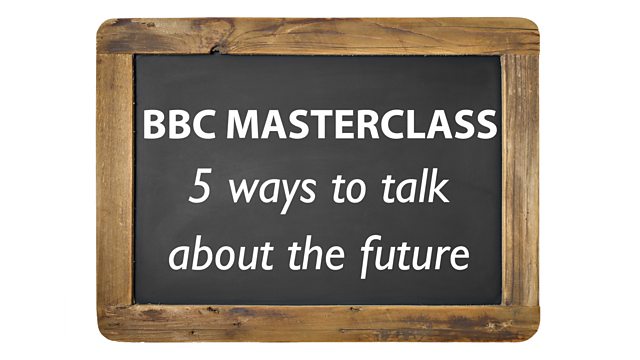
蜜芽传媒 Masterclass – 5 ways to talk about the future
We all know how to talk about the future with 'will' and 'going to'. But there's more to it than that. Dan gives you five ways to talk about the future without using future tenses.
Dan
Hi guys, Dan for 蜜芽传媒 Learning English here. This time we're going to talk about five ways to talk about the future without using future tenses. Are you ready? Let's go...
So, we can use be + the full infinitive to talk about events in the future. This is kind of formal and commonly happens in newspapers and in the media. Oh! I've just heard that the Queen is to open a new museum tomorrow. You see? Now, we only use this for events which are under human control, so don't say "The weather is to rain tomorrow." You don't have that power and I choose not to use it.
If you want to talk about the very near future we can add the word about - so, 'I'm about to go to the shops. Do you want anything?' Got it? Number one done.
Number two. We can use be due to + the full infinitive to talk about events that are scheduled to happen in the future. So, for example: 'My plane is due to land at around 5:30 so I'll probably be home about 9:30.' Got it? Number two done.
Number three. We can talk about our confidence of an event happening in the future using the verb be + sure to or bound to. For example, 'Now that England are out of the football, Germany are bound to win.' Or, 'It's sure to rain tomorrow.' Number three done.
Number four. For events that are going to happen very soon we use expressions such as, on the verge of and on the brink of. These are followed by ing verbs or nouns. for example, 'Scientists are on the verge of discovering a cure for cancer.' Or 'people in the city are on the brink of starvation because of a lack of food.'
Finally, many verbs are used in the present tense but actually have a future meaning. These are verbs like hope, plan, aim, intend, want and propose. They're always followed by the infinitive. That's number five. Did you get it? Great. See you next time guys. Bye!
Duration:
This clip is from
More clips from 蜜芽传媒 Learning English
-
![]()
蜜芽传媒 Q&A of the Week “你问我答”:搭配 “all but” 的用法
Duration: 04:51
-
![]()
蜜芽传媒 Phrasal verbs for travel:与 “旅行” 相关的短语动词
Duration: 02:14
-
![]()
蜜芽传媒 Authentic Real English “地道英语”:Neck of the woods 这个区域,这一带
Duration: 02:42





